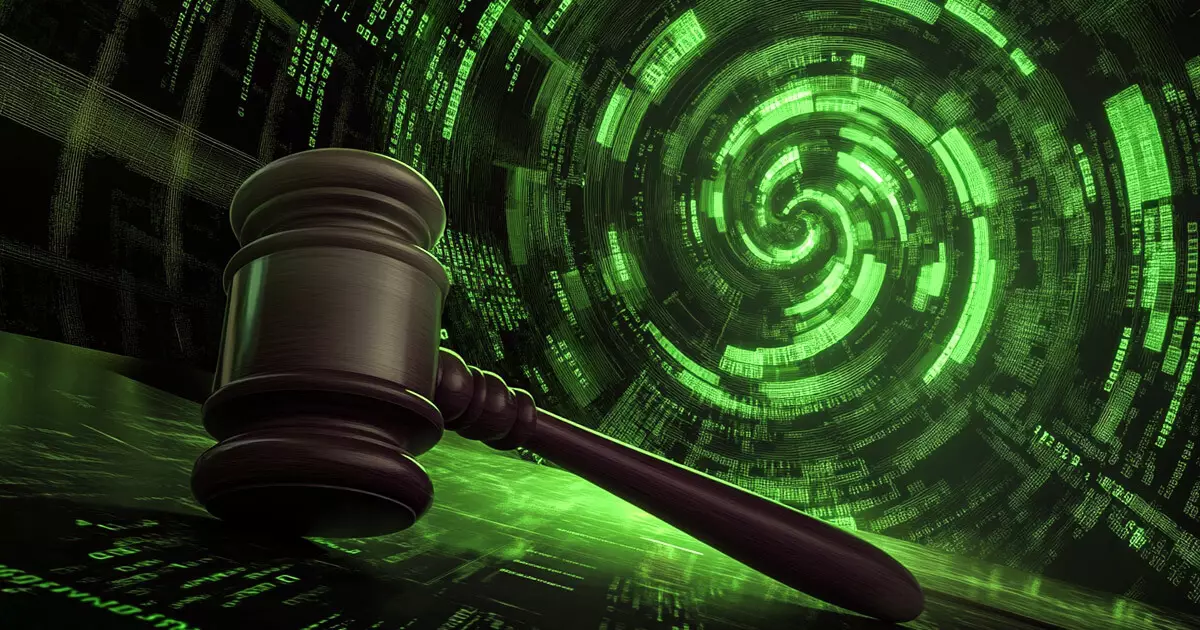The landscape of cryptocurrency and blockchain technology has undergone dramatic changes in recent years, with debates surrounding the definition of money, the role of decentralization, and the responsibilities of developers. The recent ruling by Judge Katherine Polk Failla in the Southern District of New York, declaring that software code used in crypto protocols such as Tornado Cash does not receive protection under the First Amendment, has sparked fervent discussions within the financial and legal sectors. This decision raises crucial questions about the intersection of technology, law, and individual rights in an increasingly digital world.
On September 26, Judge Failla’s decision solidified a viewpoint that could significantly alter how regulatory frameworks treat cryptocurrency platforms. The court ruled that the act of deploying software code for money transmission does not necessarily safeguard it under free speech protections, a stance that challenges previous assumptions about the legal status of code as a form of expression. The ruling implicates not only the Tornado Cash developer, Roman Storm, but also establishes a precedent for other decentralized finance (DeFi) applications facing scrutiny, including Samourai Wallet.
The primary legal issue revolves around the definition of a “money transmitter” under the Bank Secrecy Act (BSA). Judge Failla emphatically stated that a developer’s control over funds is not a requisite factor for classifying an entity as a money transmitter. This has profound implications as it places numerous crypto developers—who may not have direct control over the funds they help facilitate—within the reach of financial regulations and potential liability.
Storm’s impending trial on charges of money laundering and operating an unlicensed money-transmitting business only amplifies the concern among developers. The legal community and cryptocurrency advocates view the decision as an encroachment on innovation and freedom of speech. Amanda Tuminelli, Chief Legal Officer at the DeFi Education Fund, criticized the ruling for potentially expanding liabilities for developers in uncharted territories. The sentiment echoed throughout the crypto sector, as numerous stakeholders voiced concerns that the decision could impose unnecessary burdens on blockchain innovation and evolution.
Moreover, the implications of the ruling extend beyond mere legal ramifications; it raises existential questions about the role of developers in the blockchain community. If individuals involved in developing code for financial transactions face the same legal scrutiny as traditional financial institutions, this could dissuade innovation and further drive projects underground, where regulatory oversight and protection mechanisms are even less effective.
The ruling has drawn sharp criticism from various factions within the crypto industry. Prominent figures, including Jake Chervinsky, Chief Legal Officer of Variant, condemned the ruling as a dangerous precedent that undermines the essential freedoms of software developers. The dissent echoes a broader fear that stringent legal frameworks designed for traditional financial mechanisms could stifle the growth of decentralized technologies, potentially relegating them to shadowy domains devoid of innovation and progress.
This ruling also reflects a growing trend in government scrutiny over cryptocurrencies, particularly as regulators grapple with a rapidly changing financial landscape. Tornado Cash, accused of facilitating cybercrime, stands as a case study in heightened regulatory interest and the government’s willingness to apply existing laws to new technologies. The ruling could embolden regulators, leading to increased oversight of other DeFi projects and elevating the stakes for developers significantly.
The upcoming trial set for December 2 will likely draw considerable attention, not only for its immediate implications for Roman Storm but also for its potential to set a benchmark in cryptocurrency regulation. The legal team representing Storm has already indicated plans to appeal the ruling, signaling that this convoluted legal issue is far from resolved. As increased accountability is demanded from crypto developers, one must wonder how this will shape the regulatory attitudes towards blockchain technology going forward.
The courts have offered a glimpse into how traditional financial legal structures may be applied to the nebulous realm of digital currencies, a watershed moment for developers operating without the conventional frameworks that govern traditional finance. As the cryptocurrency world continues to mature, the ongoing discourse surrounding legal standards and protections will be critical in shaping its future and ensuring that innovation thrives within considerate regulatory parameters.

